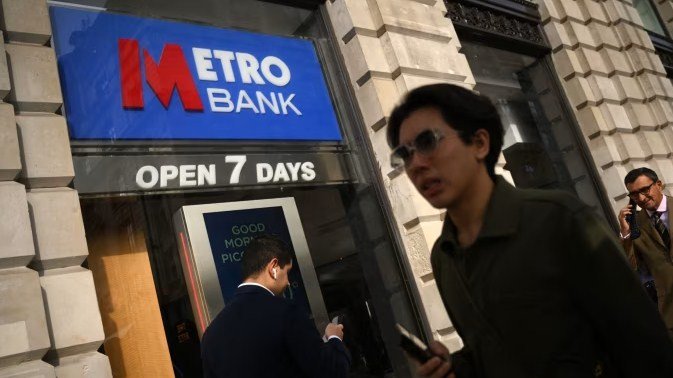Metro Bank, one of the UK’s challenger banks, announced on Thursday that it plans to reduce its staff by 20% and extend its branch opening hours to seven days a week. The move is part of the bank’s strategy to improve its efficiency and profitability, as it faces increased competition and regulatory pressure.
The reasons behind the restructuring
Metro Bank, which was founded in 2010, has been struggling to grow its customer base and revenue in recent years. The bank reported a loss of £271.8 million in 2020, compared to a profit of £130.8 million in 2019. The bank also faced a major accounting scandal in 2019, when it admitted that it had misclassified some of its loans and overstated its capital ratio. The scandal led to a sharp drop in its share price, a regulatory investigation, and the departure of its founder and chairman, Vernon Hill.
The bank said that the restructuring is aimed at reducing its cost-to-income ratio, which measures how efficiently a bank generates revenue from its expenses. The bank’s cost-to-income ratio was 114% in 2020, meaning that it spent more than it earned. The bank’s target is to bring it down to 60% by 2024.
The bank also said that the restructuring will help it focus on its core strengths, which are its retail and small business customers, its digital banking platform, and its network of branches. The bank currently has 77 branches across the UK, which it calls “stores”. The bank prides itself on offering a superior customer experience, with features such as free coin-counting machines, dog-friendly branches, and instant debit card issuance.
The impact on the employees and customers
The bank said that it will cut about 1,400 jobs out of its 7,000-strong workforce, mainly in its head office and central functions. The bank said that it will try to redeploy as many affected employees as possible to other roles within the bank, and that it will offer them support and severance packages.
The bank also said that it will extend its branch opening hours to seven days a week, from 8 a.m. to 8 p.m. on weekdays, and from 8 a.m. to 6 p.m. on weekends. The bank said that this will provide more convenience and flexibility for its customers, especially those who work irregular hours or need to access banking services outside of normal working hours.
The bank said that it will not close any of its branches as part of the restructuring, and that it will continue to invest in its digital banking platform, which has seen a surge in usage during the COVID-19 pandemic. The bank said that it will also launch new products and services, such as a buy-now-pay-later offering, a credit card, and a business current account.
The reaction from the market and the analysts
The bank’s share price rose by 9% on Thursday, following the announcement of the restructuring. The market welcomed the bank’s efforts to improve its efficiency and profitability, and to differentiate itself from its competitors.
However, some analysts remained cautious about the bank’s prospects, given the challenging environment for the UK banking sector. The sector faces low interest rates, which squeeze the margins of lenders, as well as increased competition from fintech startups and big tech firms, which offer alternative and cheaper ways of providing financial services.
One analyst, John Cronin from Goodbody, said that the bank’s restructuring is “a step in the right direction”, but that it is “not a silver bullet” for its problems. He said that the bank still needs to address its low return on equity, which measures how well a bank uses its shareholders’ funds to generate profits.
The bank’s return on equity was -32% in 2020, compared to an average of 5% for the UK banking sector . He also said that the bank needs to improve its asset quality, which measures how risky its loans are. The bank’s ratio of non-performing loans, which are loans that are overdue or unlikely to be repaid, was 2.9% in 2020, compared to an average of 1.4% for the UK banking sector .
Another analyst, Ian Gordon from Investec, said that the bank’s restructuring is “sensible”, but that it is “not transformational” for its valuation. He said that the bank’s share price is still too high, given its low profitability and growth prospects. He said that the bank’s share price implies a valuation of 1.3 times its tangible book value, which is the value of its assets minus its liabilities and intangible assets. He said that this is too optimistic, and that the bank should trade at a discount to its tangible book value, given its poor performance and outlook.

